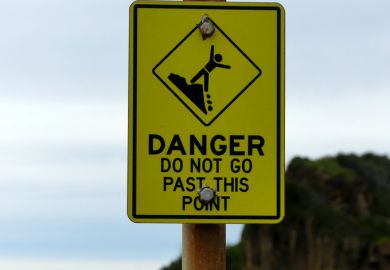Many people in Australia likely think the past few months of political turmoil around the regulation of overseas students looks kooky.
But while the dearth of a longer-term vision around university financing and student housing is striking, experts who have been around the world or the sector can see that the last 30 years have been weird in Australian higher education.
Universities have charted an almost unprecedented global course in commercialising public education, such that academic values are being eroded and dependence on overseas student fees has become socially and politically unsustainable.
Integral to this trajectory is the marginalisation of the academic perspective within universities and the rise of an administrative class fixated by the principle of the (evidently unstable, in many cases) bottom line. Even as universities have become dominated by this extensive executive cadre, generously resourced to buffer them from external drama, they clearly didn’t see the current crises around revenue, leadership and public standing coming.
Further stumbling in this direction will yield diminishing returns for universities and the communities they strive to serve. Institutional priorities must be tilted back towards academic rather than financial growth. And for that to happen, we need a re-assertion of the academic leadership that gives higher education its credibility and prestige.
Governments cannot do this work, however. Neither can consultants, lawyers or coders: it’s beyond their remit, capability and interest. Most of the academic change is too much in the weeds even for governing councils, while executives, obviously, have disclosed vested interests in prevailing arrangements.
Teachers and researchers, therefore, will need to step up to the plate and enact this rejuvenation for themselves. It will not be easy. But straightening up on to a normal academic path isn’t inherently complex.
The solution, clearly, is to establish platforms in the national higher education architecture that support academic leadership. Their remit would not be scholarly debate – although Aussies might almost be excused these days for forgetting that intellectual fervour is one of the hallmarks of prestigious higher education. Rather, they would be fora where teachers discuss professional practices and ethics, where discipline leaders set sector standards, where careers advisors put curriculum and outcomes in contemporary frame, and where professors discuss university workforce growth and development.
Australia used to have such platforms, and most of the world’s major higher education systems still do. They must be rebuilt, or possibly cleansed of the administrative logic that has pushed its way on to the academic table. Universities or governments can help if they look beyond short-term interests. An appropriately constituted tertiary commission could do the job, as could reinvigoration of existing academic councils, boards or networks.
Such academic authority provides important grounding and counterpoint even – or perhaps especially – in a highly internationalised yet small higher education system like Australia’s. It constitutes an external bulwark that bolsters the standing of universities’ corporate and academic leadership alike. Compliance and commercial mindsets help solve passing problems, but, logically, universities need academics to build the product undergirding their mission.
As Australia’s higher education sector rocks from wide-scale consultation and reformist legislation to overnight politics, attention anxiously narrows around day-to-day troubles, rather than broader or medium-term matters. Even as universities are stunned by their inability to offer solutions for mainstream national problems, or to design their own sustainable futures, they succumb to the temptation to grab the phone, clutch at straws and rush out 24-hour media clips.
But not all higher education can be done by thumbs on phones or litigated through public mollification of stakeholder interests. Anyone who has taught in the sector for at least three years knows that higher learning takes time, even for smart people. Thinking and firming up good ideas cannot be done within short media or political cycles.
The advocacy and opinion that claw at the attention economy moments after each calamity, therefore, do so without cognisance that this itself fuels volatility. Such self-interest is exactly why people outside the sector have diminished confidence and trust in us.
Finding stable paths is tricky when things keep moving or the future is unknown. Uncertain moments are exactly when foresight, acumen and courage are required. Luckily, this is exactly what academics are credentialled to offer. The aim of the academic platforms we call for would be to produce medium-range plans, in line with academic norms and cultures, about what is to be achieved by the sector as a whole and the public universities that make it up.
In this way, it is perfectly possible for Australia to lead its wonderful higher education sector more intelligently – even making allowance for commercial, international and private forms of international education, among others. But the academic profession must be allowed, once again, to administer its own core business of research and teaching.
In other words, as Quincy Jones put it, university leaders must “check their ego at the door”, take a breath, and focus on the common good.
Hamish Coates is an independent global tertiary education expert, director of the Higher Education Futures Lab and an honorary professor at the Australian National University. Leo Goedegebuure is an expert in higher education policy research and management, and an honorary professor at the University of Melbourne and RMIT University.
Register to continue
Why register?
- Registration is free and only takes a moment
- Once registered, you can read 3 articles a month
- Sign up for our newsletter
Subscribe
Or subscribe for unlimited access to:
- Unlimited access to news, views, insights & reviews
- Digital editions
- Digital access to THE’s university and college rankings analysis
Already registered or a current subscriber?








